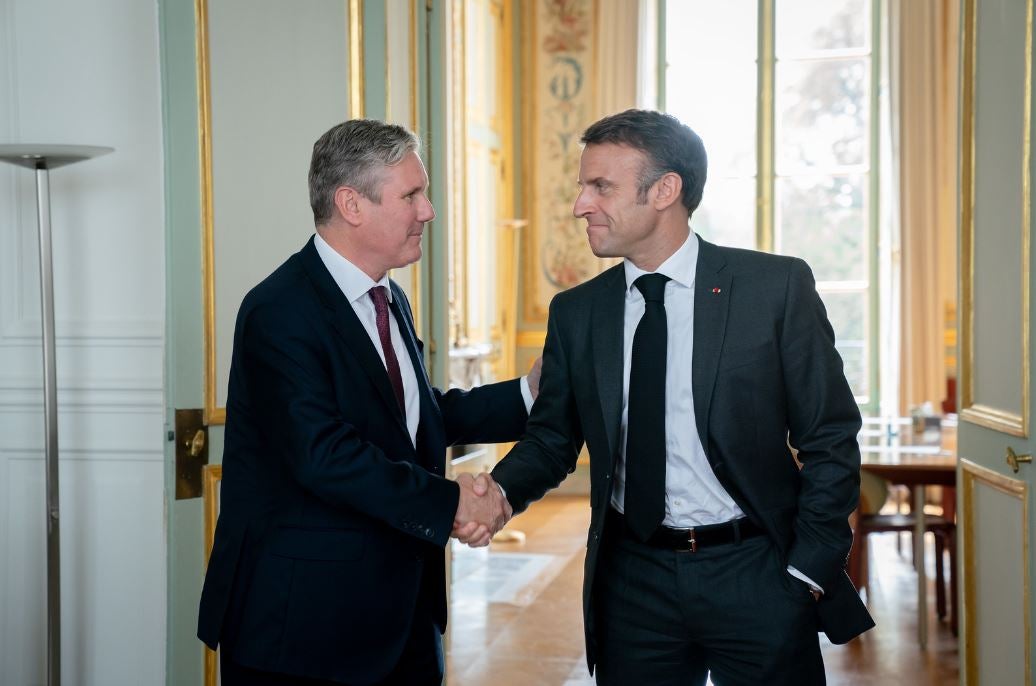What is the EU ‘inner circle’ and what does it mean for the UK and Brexit? Ask John Rentoul
The Independent’s chief political commentator John Rentoul will be taking your questions on what an ‘associate membership’ of the EU could mean for the UK, Brexit and the country’s political landscape


Your support helps us to tell the story
From reproductive rights to climate change to Big Tech, The Independent is on the ground when the story is developing. Whether it's investigating the financials of Elon Musk's pro-Trump PAC or producing our latest documentary, 'The A Word', which shines a light on the American women fighting for reproductive rights, we know how important it is to parse out the facts from the messaging.
At such a critical moment in US history, we need reporters on the ground. Your donation allows us to keep sending journalists to speak to both sides of the story.
The Independent is trusted by Americans across the entire political spectrum. And unlike many other quality news outlets, we choose not to lock Americans out of our reporting and analysis with paywalls. We believe quality journalism should be available to everyone, paid for by those who can afford it.
Your support makes all the difference.More than three years after the UK officially left the European Union, plans for a “four-tier Europe” have emerged.
In a move which could lay the ground for a closer British relationship with Brussels, France and Germany have tabled plans for a new “inner circle” of membership for countries willing to overhaul the bloc.
The new paper set out the European Political Community as the outer ring; then associate membership, which could include “even the UK”; then plain vanilla EU membership; and finally, an “inner core”, in which countries would give up the veto and accept majority voting for everything.
News of the proposals emerged as Labour leader Sir Keir Starmer held talks in Paris with French president Emmanuel Macron, on the final leg of an international tour designed to portray him as a prime minister in waiting.
But the two parties are walking a precarious tightrope over Brexit in the run-up to the general election, expected next year, with both No 10 and Labour ruling out any form of associate membership of the EU.
Naurally the paper has generated a lot of excitement from those who voted Remain in the 2016 referendum.
However the move has also prompted a furious reaction from Brexiteers who accused EU countries of “desperation” in their bid to enlarge the bloc.
There are also a number of questions around the logistics of this lite-membership. Would countries be bound to further integration with the EU? What would the benefits of an associate membership include? How much would countries have to pay into the EU budget?
That’s not to mention the questions the paper raises for the future of the UK’s relationship with the EU. Would associate membership lead to an eventual reversal of Brexit? And how will the news of the EU’s apparent flexibility feed into the way Labour and the Conservatives approach their general election campaigns?
If you have a question about the plans for associate membership of the EU, how it might be adopted or its potential impact, submit it now, or when I join you live at 2pm on Thursday 21 September for the “Ask Me Anything” event.
Register to submit your question in the comments box under this article. If you’re not already a member, click “sign up” in the comments section to leave your question. For a full guide on how to comment click here.
Don’t worry if you can’t see your question – they may be hidden until I join the conversation to answer them. Then join us live on this page at 2pm as I tackle as many questions as I can.
Join our commenting forum
Join thought-provoking conversations, follow other Independent readers and see their replies
Comments